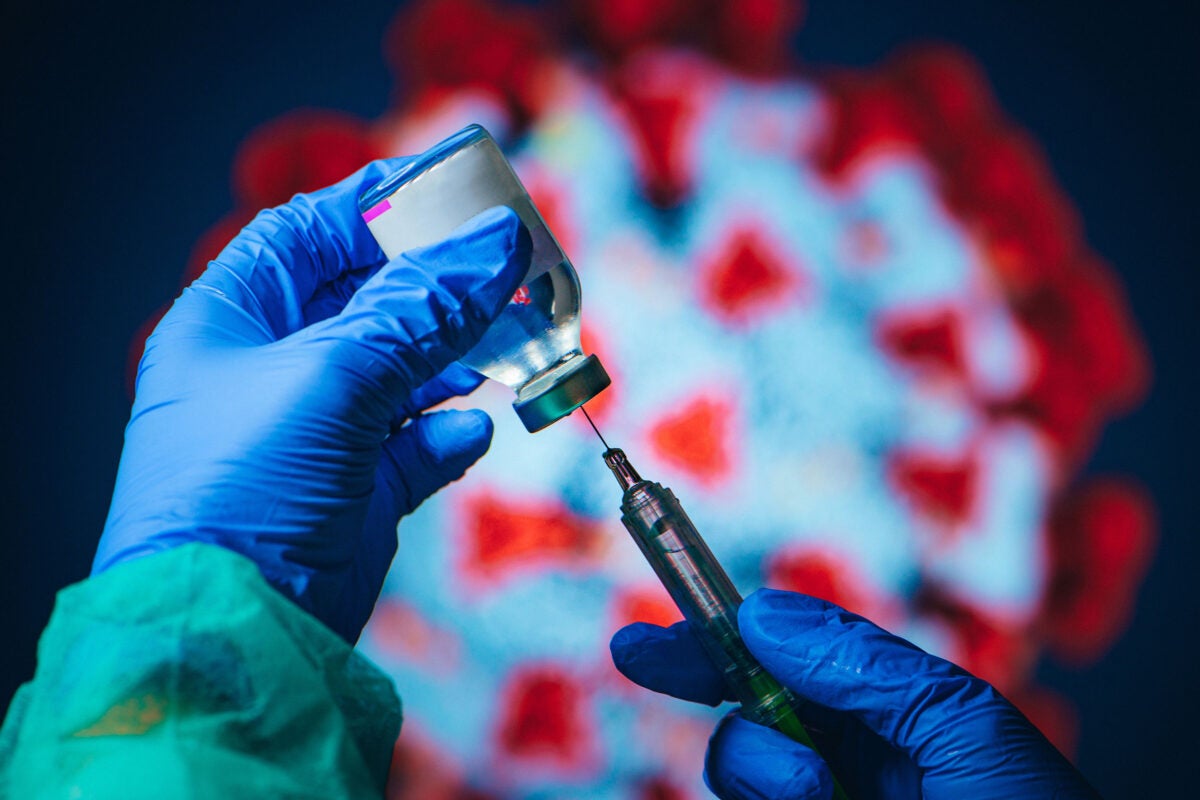Pfizer and BioNTech said Monday that their coronavirus vaccine, already authorized for those 12 and older, has been shown to be safe and effective in young children ages 5 to 11, which potentially provides a pathway toward inoculating the vast majority of U.S. schoolchildren against COVID-19. Ofer Levy, professor of pediatrics at Harvard Medical School and director of the Precision Vaccines Program at Boston Children’s Hospital, sits on a Food and Drug Administration advisory panel for coronavirus vaccines. He spoke with the Gazette about the announcement. This interview was edited for clarity and length.
Q&A
Ofer Levy
Gazette: Was Monday’s announcement an expected event?
Levy: This news is welcome news — I think that’s the word for it. I am a member of the Food and Drug Administration Advisory Committee on the Coronavirus Vaccines and, as you know, they are taking an age de-escalation approach to studying these vaccines. It started with older individuals who are at higher risk of severe COVID and then marched down in age. This highlights that age matters: Children are not little adults. It was the Greek philosopher Heraclitus who said, “The only constant thing in life is change,” and the immune system is no different. From the day we’re born to the day we die, our immune system is changing, so you have to do the study for safety and efficacy. The sponsor in this case, Pfizer, has announced that their data suggests safety and efficacy in kids 5 to 11 years of age. I am just looking at news reports, but they are pointing to a lower dose, maybe a third of the adult dose. I can’t prejudge these data until I see them, but it’s welcome news. The FDA will decide if the data is there to the point that they want to make a decision and whether they will call a meeting of our Vaccines and Related Biological Products Advisory Committee.
Gazette: Would your panel make a recommendation before emergency-use authorization is given?
Levy: It’s at FDA discretion. The FDA holds the deciding authority, and we are advisory to the FDA. The FDA decides whether to convene us, and I would welcome the opportunity, as a pediatrician and somebody who studies precision vaccines.
Gazette: What’s your sense of the need for this vaccine for children at this moment in the pandemic?
Levy: This would be important. We have continued coronavirus transmission in the United States. This pandemic is not over. Kids are getting back to school, and there’s transmission happening between kids, and between children and others. If indeed we have a safe and effective tool to reduce the risk of infection, and possibly transmission and illness from coronavirus in children, that would be a huge win for children and for the rest of society.
Gazette: Do you expect, in the future, for this or another COVID vaccine to be among kids’ routine vaccinations when they’re young. Is that the direction we’re headed?
Levy: The further forward we project, the less certainty there is around the projection. We’d love to reach herd immunity, but it’s possible that we won’t. It’s possible that this becomes an endemic virus that circulates mostly in winter. And then it’s possible that down the line, this becomes part of the pediatric vaccine schedule, but that’s getting quite a bit ahead of ourselves here. We’d like to look at the safety and efficacy for this current study.
Gazette: If the number of kids who get this vaccine mirrors the number of adults who have gotten the adult dose, with low vaccination rates in some areas, is that potentially a problem?
Levy: Any safe and effective vaccine is welcome, and if Americans who couldn’t get vaccinated before now can get vaccinated, that can only be a positive. What will the uptake be? Will it be 10 percent, 50 percent, 90 percent? The higher the uptake, the more benefit we will see as a society, but it would be a win in any case.
Gazette: So even a little bit would be better than what we have now?
Levy: The immediate goal here would be to determine safety and efficacy. If it’s there and the FDA moves forward, then the hope is for a very high percentage of Americans — of all these ages for which there’s an authorized or approved product — to receive the vaccine. That’s how we’re going to make the most headway against the pandemic.
Gazette: How fast could these doses potentially be in kids’ arms?
Levy: I have no insider information here, but from what I’m reading, the FDA might need a month to look at this data. So, let’s say we’re at Oct. 20. If they announce that they want a meeting of the advisory committee, it could be end of October, then a decision by FDA in November and then the CDC by the first, second week of November. So it could be rolling out in mid-to-late November, I’m guessing.
Gazette: So there’s a lot of wiggle room in that process?
Levy: Yes, by plus or minus two weeks.
Gazette: Do you have any message to parents who are reading this news?
Levy: I think they should stay tuned. They should understand that rigorous studies that are placebo controlled are being done in children at different dosing levels to really understand the safety and efficacy of these vaccines in children of younger and younger ages. And they should realize that we do have a robust process at the U.S. Food and Drug Administration to evaluate, in a transparent way, safety and efficacy. We take that seriously. So stay tuned and follow the public guidance.





